Duck Dog Tip of the Week: Retriever Pup Nutrition
 “The food you feed a puppy, and how you feed that food over the course of the first year, will be one of the most important things you do over his entire life. Together you are building the athlete you will spend the next 12-15 years with in the field. If your pup is a retriever or similarly sized breed, is vitally important to choose a large breed puppy formula that has been formulated for optimal controlled growth. This is achieved with appropriate levels of calcium and vitamin D. While some products will carry an “appropriate for all life stages” label, this doesn’t mean that it is the BEST for large breed puppies. Throughout your pup’s growth and development, the goal shouldn’t be just good enough but rather what’s best for that developing athlete. Just as important is the amount of food being fed. While roly-poly puppies may be cute in pictures, in real life they make me cringe as I see a potential lifetime of issues caused by puppyhood obesity. Early in your pup’s life, it is important to familiarize yourself with what an ideal body condition looks and feels like. You will want to be able to readily feel the ribs, and in shorter-coated breeds like Labradors, you should be able to see the last couple of ribs. Your dog should be well muscled down the back, hips and rear legs. If the ribs aren’t readily visible we need to decrease the amount being fed, and if your pup’s hips are starting to become prominent, you will want to increase the amount. Measured, controlled feedings are also very important. Some dogs allowed to free-choice feed may not appear to become obese, but often this fuels excessive growth and they end up bigger than their genes were programmed. Also, the feeding recommendations on the bag are just guidelines — many dogs will need less than this amount and some dogs will need more. It is important to feed the appropriate amount specific to your individual dog based on his activity level and growth. How you feed your puppy is the one thing that will affect your dog today, tomorrow and for years to come.” — Dr. Joe Spoo DVM, DACVSMR, CCRT
“The food you feed a puppy, and how you feed that food over the course of the first year, will be one of the most important things you do over his entire life. Together you are building the athlete you will spend the next 12-15 years with in the field. If your pup is a retriever or similarly sized breed, is vitally important to choose a large breed puppy formula that has been formulated for optimal controlled growth. This is achieved with appropriate levels of calcium and vitamin D. While some products will carry an “appropriate for all life stages” label, this doesn’t mean that it is the BEST for large breed puppies. Throughout your pup’s growth and development, the goal shouldn’t be just good enough but rather what’s best for that developing athlete. Just as important is the amount of food being fed. While roly-poly puppies may be cute in pictures, in real life they make me cringe as I see a potential lifetime of issues caused by puppyhood obesity. Early in your pup’s life, it is important to familiarize yourself with what an ideal body condition looks and feels like. You will want to be able to readily feel the ribs, and in shorter-coated breeds like Labradors, you should be able to see the last couple of ribs. Your dog should be well muscled down the back, hips and rear legs. If the ribs aren’t readily visible we need to decrease the amount being fed, and if your pup’s hips are starting to become prominent, you will want to increase the amount. Measured, controlled feedings are also very important. Some dogs allowed to free-choice feed may not appear to become obese, but often this fuels excessive growth and they end up bigger than their genes were programmed. Also, the feeding recommendations on the bag are just guidelines — many dogs will need less than this amount and some dogs will need more. It is important to feed the appropriate amount specific to your individual dog based on his activity level and growth. How you feed your puppy is the one thing that will affect your dog today, tomorrow and for years to come.” — Dr. Joe Spoo DVM, DACVSMR, CCRT


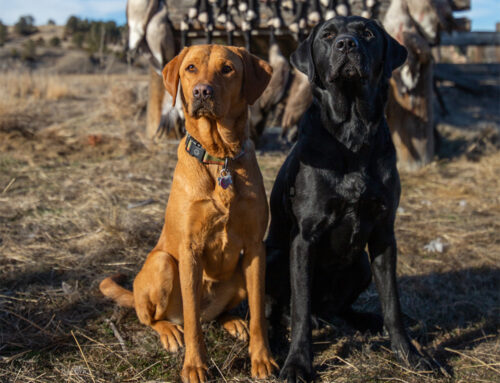
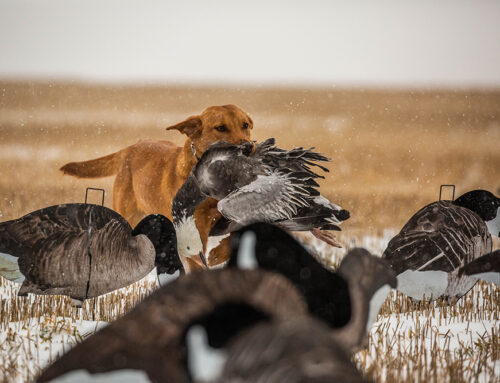
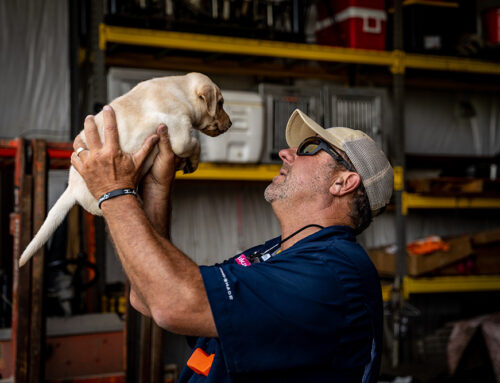
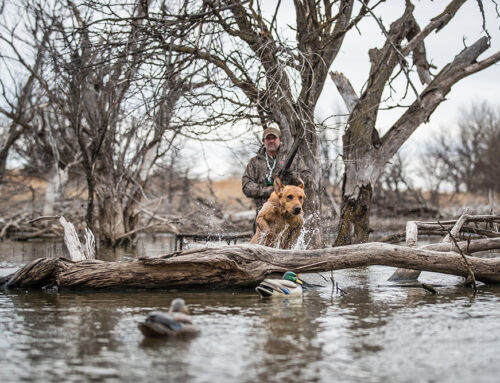
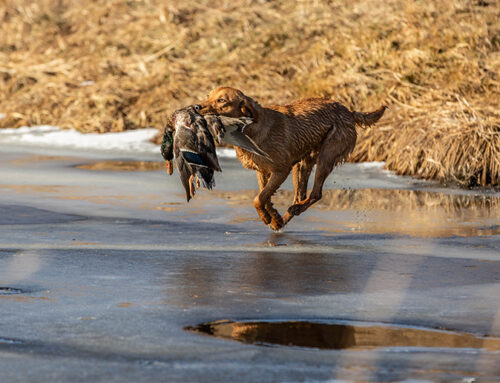
Leave A Comment